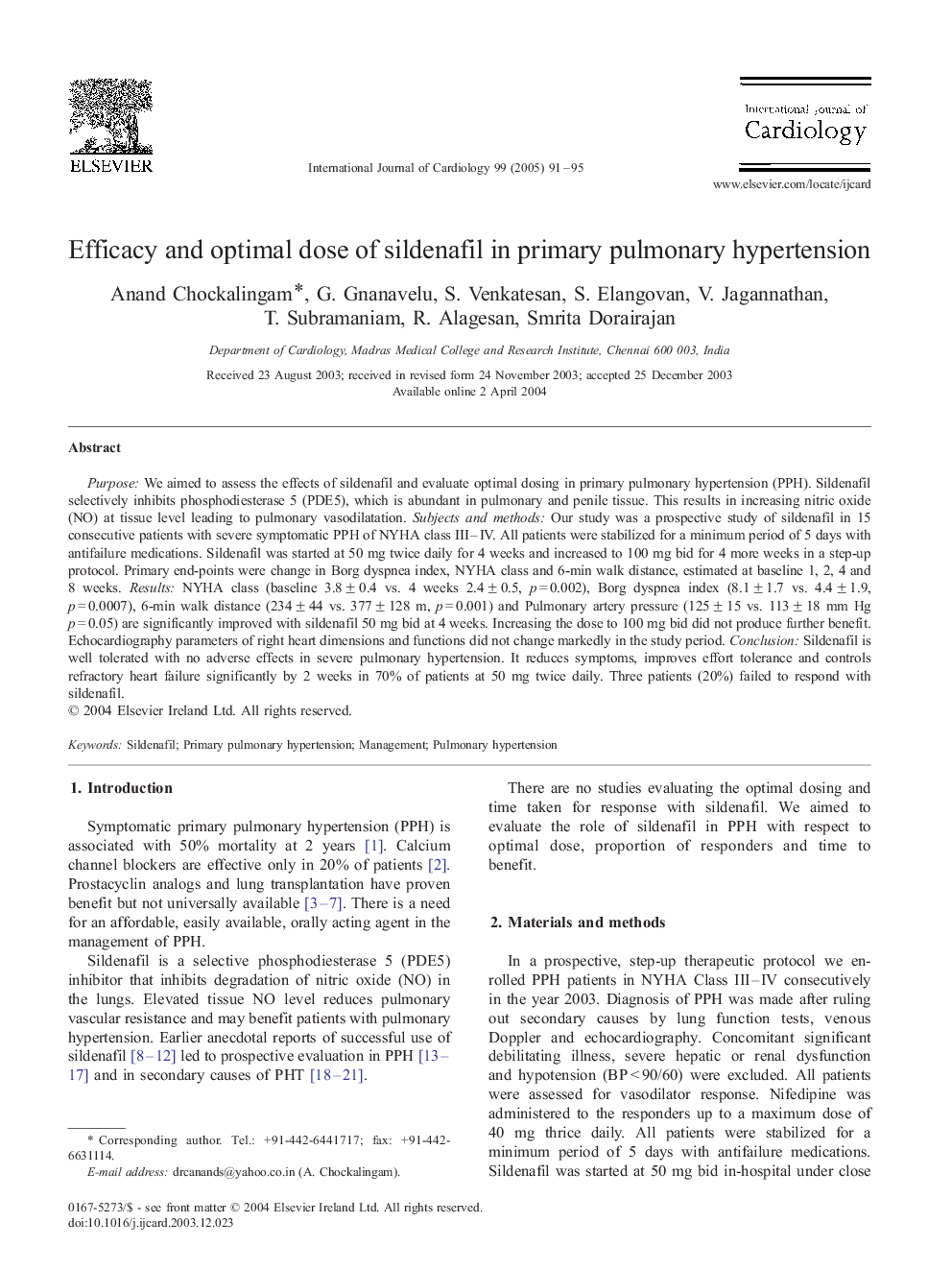| Article ID | Journal | Published Year | Pages | File Type |
|---|---|---|---|---|
| 9957057 | International Journal of Cardiology | 2005 | 5 Pages |
Abstract
Purpose: We aimed to assess the effects of sildenafil and evaluate optimal dosing in primary pulmonary hypertension (PPH). Sildenafil selectively inhibits phosphodiesterase 5 (PDE5), which is abundant in pulmonary and penile tissue. This results in increasing nitric oxide (NO) at tissue level leading to pulmonary vasodilatation. Subjects and methods: Our study was a prospective study of sildenafil in 15 consecutive patients with severe symptomatic PPH of NYHA class III-IV. All patients were stabilized for a minimum period of 5 days with antifailure medications. Sildenafil was started at 50 mg twice daily for 4 weeks and increased to 100 mg bid for 4 more weeks in a step-up protocol. Primary end-points were change in Borg dyspnea index, NYHA class and 6-min walk distance, estimated at baseline 1, 2, 4 and 8 weeks. Results: NYHA class (baseline 3.8±0.4 vs. 4 weeks 2.4±0.5, p=0.002), Borg dyspnea index (8.1±1.7 vs. 4.4±1.9, p=0.0007), 6-min walk distance (234±44 vs. 377±128 m, p=0.001) and Pulmonary artery pressure (125±15 vs. 113±18 mm Hg p=0.05) are significantly improved with sildenafil 50 mg bid at 4 weeks. Increasing the dose to 100 mg bid did not produce further benefit. Echocardiography parameters of right heart dimensions and functions did not change markedly in the study period. Conclusion: Sildenafil is well tolerated with no adverse effects in severe pulmonary hypertension. It reduces symptoms, improves effort tolerance and controls refractory heart failure significantly by 2 weeks in 70% of patients at 50 mg twice daily. Three patients (20%) failed to respond with sildenafil.
Related Topics
Health Sciences
Medicine and Dentistry
Cardiology and Cardiovascular Medicine
Authors
Anand Chockalingam, G. Gnanavelu, S. Venkatesan, S. Elangovan, V. Jagannathan, T. Subramaniam, R. Alagesan, Smrita Dorairajan,
